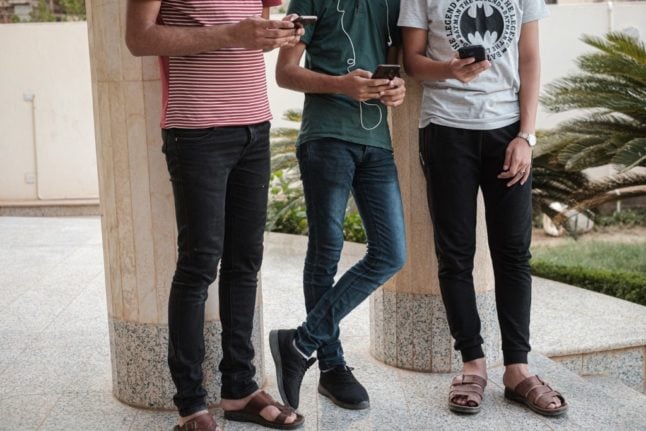Giuseppe Valditara, Italy’s new minister for Education and Merit, delivered the order via a circular sent to Italian schools on Tuesday morning.
The document notes that Italy has in fact had a ban on phones in classrooms for over 15 years – which might make some wonder why a new rule is required.
The use of cellphones in class was “disrespectful to teachers” and created “an element of distraction”, Valditara wrote, adding that the move was intended to help to restore teachers’ authority.
“I intend to pursue the common interest of a serious school that puts learning and commitment back at the centre,” the letter said.
However no penalties will be applied for failing to enforce the rule, he clarified, adding, “we are not introducing disciplinary sanctions, we are calling for a sense of responsibility.”
The ban applies to both students and teachers, and extends to similar electronic devices; an exception is made for the use of digital tools as a learning aid.
The prohibition has been in force in Italy since 2007, the document notes, with the issuance of a previous circular that in turn made reference to a 1998 law.
The directive was broadly approved by the president of Italy’s National Association of Principals, Antonello Giannelli, who called it “acceptable both in substance and in form.”
He noted, however, that mobile phones can be used to make teaching more inclusive and can serve a function in schools.
“Yes to the cell phone as a teaching tool, no as a distraction tool,” Giannelli said.
The news received more mixed reactions on social media sites.
The government is taking a step back, argued journalist Tommaso Cerno on Twitter, saying “let’s turn on brains instead of turning off technology.”
Il telefonino vietato. Un po come il pos. Si torna al "contante" anche a scuola. I vecchi dizionari con i biglietti incollati. Accendiamo i cervelli, invece che spegnere la tecnologia
— Tommaso Cerno (@Tommasocerno) December 20, 2022
A Twitter user named Rossana Rolando, who says she teaches philosophy and history, pointed out that students weren’t allowed to use their phones in class before now anyway.
“I don’t think it changes the educational problem of cellphone use one iota, inside and outside schools,” she wrote.
La circolare inviata dal Min. Valditara, per vietare l’uso dei cellulari in classe, non aggiunge nulla di nuovo. Nessuno ne ha mai autorizzato l'uso (salvo casi particolari).
Non credo sposti di una virgola il problema educativo dell'uso del cellulare, dentro e fuori la #scuola.— Rossana Rolando (@RossanaRolando) December 20, 2022
And Ciro Pellegrino, a senior reporter for the news outlet Fanpage in Naples, criticised the government for not focusing on more important issues.
“Great! Now that they’ve finally eliminated the #cellphone in school, is there any hope they’ll reintroduce toilet paper?” he wrote.
“No, because in some schools, students and even teachers bring their own.”
Bene!
Ora che finalmente hanno eliminato il #cellulare a scuola c'è speranza che reintrodurranno la carta igienica?
No, perché in alcune scuole gli studenti e pure gli insegnanti se la portano da casa.— Ciro Pellegrino (@ciropellegrino) December 20, 2022



 Please whitelist us to continue reading.
Please whitelist us to continue reading.
Member comments